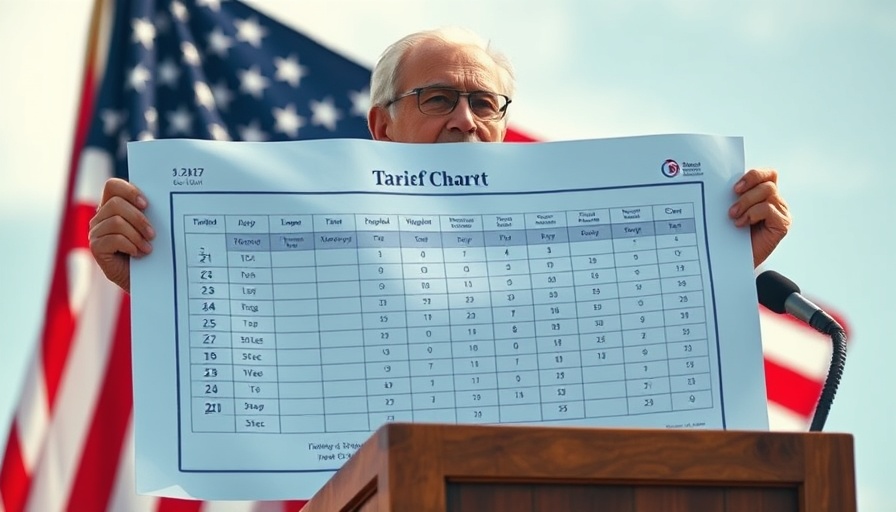
Understanding Trump's Tariffs Through Historical Lenses
As President Donald Trump enacted sweeping tariff policies, he stirred national debate not just about the present economy but echoed sentiments from America’s tumultuous past. On April 2, 2025, Trump referred to the infamous Smoot-Hawley Tariff Act during an announcement on his reciprocal tariff strategy, asserting that the act could have changed the course of the Great Depression. This assertion, notably a centerpiece of his speech, elicited swift reactions across social media platforms and ignited discussions about historical accuracy and economic outcomes.
The Smoot-Hawley Tariff Act: Historical Context
The Smoot-Hawley Tariff Act, enacted in 1930, aimed to protect American industry from foreign competition during a period of economic strife. However, history often depicts it as a catalyst for deepening the Great Depression. Critics argue that it led to retaliatory tariffs from other nations, ultimately restricting international trade. Interestingly, University of Manitoba history professor George Buri presents a counter-narrative, suggesting that the act's actual impact on the economy was less severe than commonly perceived. He highlights that while tariffs may have contributed to a downturn, the primary factors were already in place due to broader economic conditions.
Lessons from the Past: Tariffs and Economic Policy
Trump's invocation of Smoot-Hawley is not simply a case of historical reference; it underscores the complexities and potential pitfalls related to tariffs as economic policy. Tariffs are designed to safeguard local businesses, yet they can inadvertently provoke trade wars, affecting prices for consumers and businesses alike.
Economists often debate protective tariffs, citing examples from both sides. For instance, during the early 20th century, protectionist measures initially benefited American industries, yet as global competitiveness heightened, these measures became counterproductive. Today's global economy, far more interconnected than in the past, presents similar challenges; policy decisions must consider ramifications across both domestic and foreign landscapes.
Current Ramifications of Tariff Policies
In light of Trump’s tariffs, analysts like Buri emphasize the long-term implications these policies may have on economic relations and trade agreements, particularly as globalization remains a driving force in contemporary commerce. The questioning of tariff benefits amidst rising prices for everyday consumers raises a significant issue: increasing checks are increasingly being placed on our past policies and are sometimes found wanting for effective solutions to current dilemmas.
Cultural Resonance: How Movies Shape Economic Perspectives
This discussion is not confined to economic analysis but crosses into cultural narratives as well. A popular moment referenced during Trump's speech was a scene from the classic film *Ferris Bueller’s Day Off*, where the character's teacher—played by economist Ben Stein—enumerates the failures associated with the Smoot-Hawley Tariff. Art, as a reflection of society, often shapes public perception and dialogues, making it a relevant focal point in economic discussions. While such representations invoke a specific understanding of tariffs' effects, they also highlight the need to continually analyze facts against dominant narratives.
Trade Wars & Future Economic Policies: Predictions Ahead
Looking forward, one wonders what the future holds as countries navigate increasingly complex trade relationships. If historical lessons on tariffs are to be valuable, leaders must consider the delicate balance between protective measures and the risk of economic isolation. Analysts predict that the current trajectory could lead to prolonged trade wars, posing new challenges to global cooperation and economic growth.
Conclusion: The Importance of Historical Awareness
In the end, understanding Trump’s tariffs through a historical lens emphasizes the enduring relevance of economic policies from decades past. While engaging in protective measures might feel prudent in the short term, reflecting on the complex interconnections within the global economy is essential. As history often reminds us, economic strategies come with consequences, needing careful consideration to avoid repeating the mistakes of our predecessors.
 Add Row
Add Row  Add
Add 




 Add Row
Add Row  Add
Add 

Write A Comment